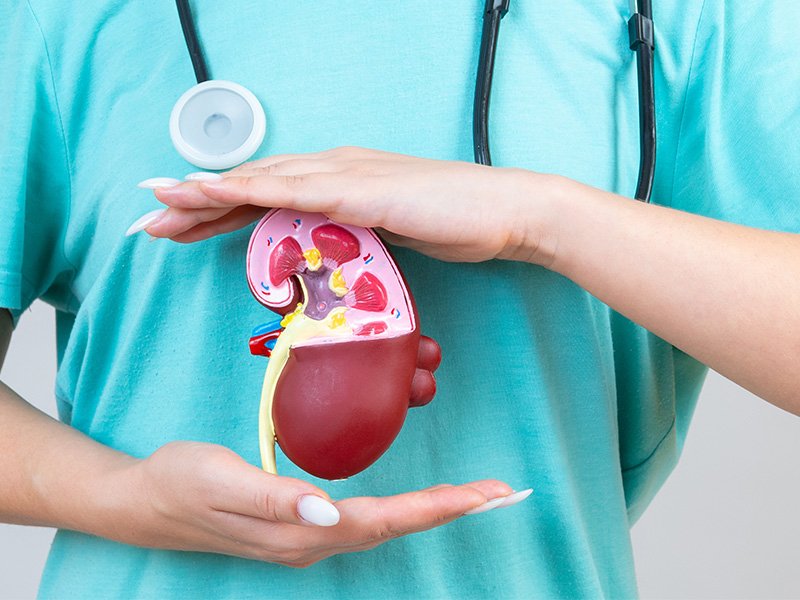Causes of Kidney Stone
Hard deposits of minerals and salts called kidney stones form inside your kidneys. These can be categorized as urolithiasis, nephrolithiasis, or renal calculi. Any component of your urinary tract, including your kidneys and bladder, might develop kidney stones. Numerous things, including nutrition, excessive body weight, illnesses, specific supplements, and medications, might result in kidney stones. Even though passing kidney stones can be excruciating, they usually don’t cause permanent damage if found early enough.
Symptoms of Kidney Stone
Until a kidney stone moves or enters one of the ureters, symptoms are often absent. “ureters” refers to the tubes linking the kidneys and bladder. Afterward, you may exhibit the following symptoms:
- Back and side pain below the ribs that is excruciating and acute
- Radiating groin and lower abdominal pain
- Waves of various intensities
- Urination that causes pain or a burning sensation
Types of Kidney Stone
Finding out what kind of kidney stone you have can assist in identifying its source and may provide information on how to lower your risk of developing additional kidney stones. If you pass a kidney stone, attempt to keep it if you can so you may give it to your doctor for analysis.
The following kidney stone types:
- Calcium stones: Calcium stones, typically in the form of calcium oxalate, make up most kidney stones. Your liver produces oxalate daily and can also get it from food. The oxalate level of some fruits, vegetables, nuts, and foods like chocolate is high.
- Struvite stones: Urinary tract infections can cause the formation of struvite stones. Sometimes with few symptoms or little warning, these stones have the potential to grow swiftly and become highly massive.
- Uric acid stones: People with chronic diarrhea or malabsorption, those who consume a high protein diet, those with diabetes or metabolic syndrome, and those who lose too much fluid can all develop uric acid stones. Specific genetic variables may also increase your risk of uric acid stones.
- Cystine stones: People with the inherited cystinuria condition, which causes the kidneys to discharge too much of a particular amino acid, develop these stones.
Kidney Stone Treatment
Kidney stones are treated similarly in adults and children. You could be instructed to consume a lot of water. Without performing surgery, doctors try to let the stone pass. You can also be prescribed medicine to lessen the acidity of your urine. However, surgery is required to remove it if it is too large, obstructs the passage of urine, or shows signs of infection.
If you experience any signs or kidney stone symptoms and have a kidney stone removed, make an appointment with your doctor.
If you encounter any of the following, get medical attention right away:
- Your pain is so intense that you cannot sit still or find a comfortable position.
- Suffering from discomfort, sickness, and vomiting
- Having pain, a fever, and chills
- Blood in the urine
- Trouble urinating
Approaching the best nephrologist Dr. Ravi Bhadania will ensure a painless kidney stone removal procedure at Alfa Kidney Care Hospital Ahmedabad. He is renowned for treating patients with the utmost care and following the correct procedures. Book an Appointment Now!
